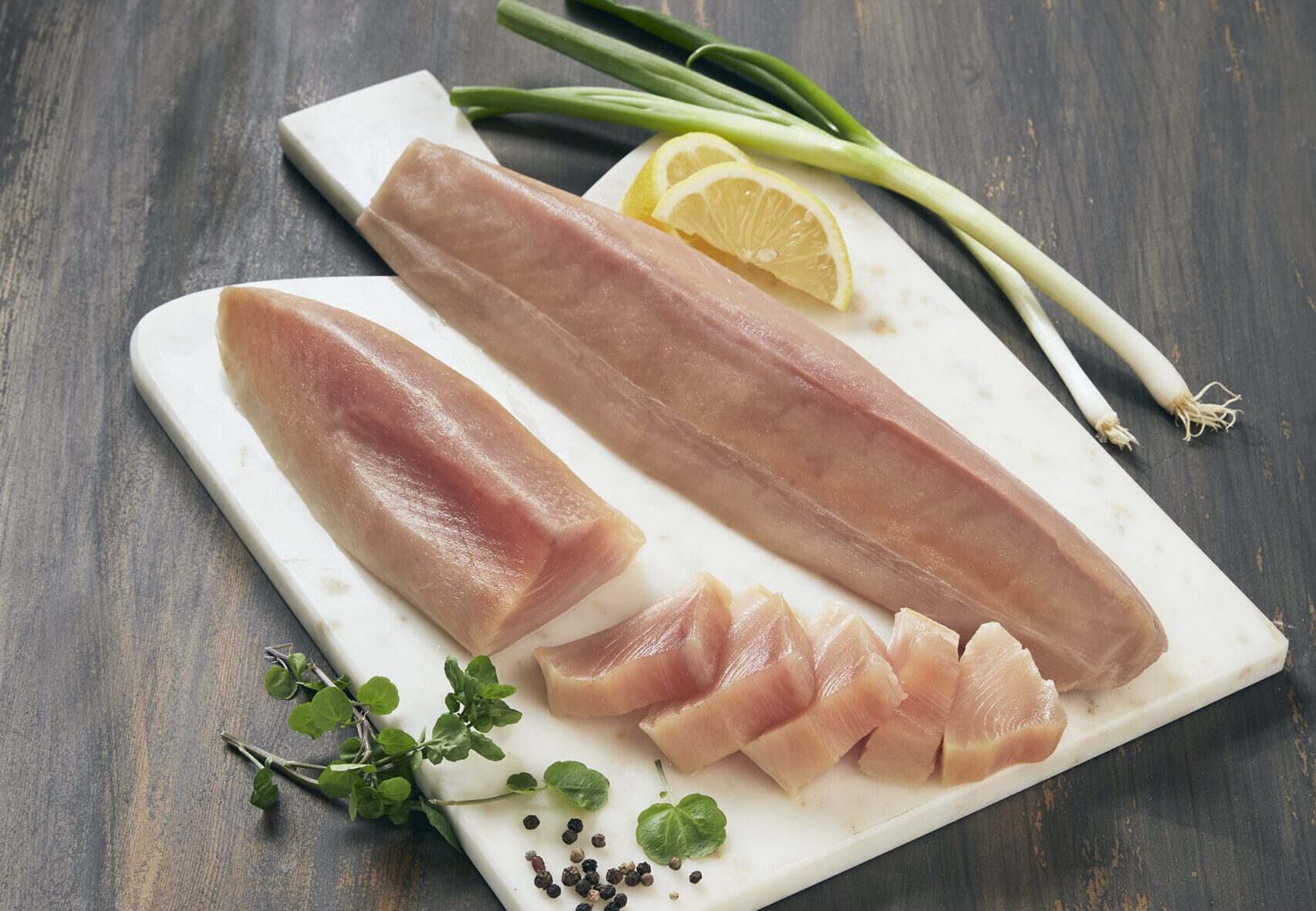Why You Don't Need To Worry About Mercury In BC Albacore Tuna
NewsSelecting local, BC Albacore tuna has significant advantages but low mercury levels aren’t even the whole story!

Registered Holistic Nutritionist and Skipper Otto member, Melissa Evanson, continues our nutrition blog series with this post on albacore tuna.
The health benefits of eating tuna have been widely touted; it’s a high-protein fish with an abundance of omega-3 fatty acids, vitamin D and selenium – a key trace mineral essential in supporting the immune system, brain function and reproductive health <1>. More on selenium in a bit; but we’ve all also heard that tuna contains mercury, a heavy metal with neurotoxic properties. Does that mean it’s best to avoid Skipper Otto’s delicious tuna loin recipes? Absolutely not!
Mercury levels in the environment have increased since the industrial revolution, mainly due to waste burning and coal combustion. Fish can accumulate mercury in their muscles through absorption from surrounding water and from other fish they eat. As a fish gets larger and older, more toxins can accumulate. Because of concerns over mercury in fish, B.C.’s Ministry of Health recommends daily limits for large, predatory fish species such as tuna, shark, marlin and swordfish <2>. But they also note that Albacore tuna products from Canada have no serving limits <3>. That’s right. No serving limits, even for pregnant and breastfeeding women, babies and children. Extensive and ongoing testing for mercury by the Canadian Inspection Food Agency has deemed Canadian North Pacific Albacore tuna (fresh, frozen and canned) “safe to eat” as mercury levels in these fish collected in Canadian waters are lower than in other species and stocks of tuna and, therefore, do not pose a health risk.
There are a few likely reasons why B.C. Albacore tuna have lower concentrations of mercury. One is that B.C. Albacore are caught at a relatively young age (3-4 years) compared to the other listed species, like sharks and other tuna like Bluefin, that have longer lifespans during which toxins can accumulate. Habitat is another factor. A study comparing mercury levels in Albacore tuna from the North Pacific vs the Mediterranean showed a 10-fold increase in Mediterranean tuna <4>. This could be explained, in part, by the fact that the Mediterranean Sea is located over one of the richest natural reserves of mercury in the world and is also a semi-enclosed body of water where toxic compounds can concentrate.
Selecting local, B.C. Albacore tuna has significant advantages but low mercury levels aren’t even the whole story! Let’s circle back to selenium…
Mercury is only harmful when its concentrations are high enough to bind to selenium, preventing selenium from performing its vital role in the brain. As long as you are eating selenium-rich foods like fish, the amount of selenium in the body will always be in excess of mercury. Luckily for us Skipper Otto’s members, the BC fish we consume has significantly more selenium than mercury which means you get all the benefits of selenium, unlike some international species/stocks of tuna, shark, swordfish, marlin, escolar and orange roughy.
The bottom line: There is no need to limit your Skipper Otto tuna orders due to mercury concerns. Your biggest concern when picking up your Skipper Otto tuna loins shouldn’t be about toxicity, but about whether to sear it plain or sesame crusted!
———————————
Melissa Evanson, D. Env., R.H.N.
[email protected]
www.facebook.com/melissaevansonrhn/References:
1. https://www.ncbi.nlm.nih.gov/pubmed/109632122. 2https://www.healthlinkbc.ca/healthlinkbc-files/mercury-fish
3. https://www.healthlinkbc.ca/hlbc/files/documents/healthfiles/hfile68m.pdf
4. https://drive.google.com/file/d/0B7wPqiTqmpSJbll5bzZCWk5YZms/edit?pli=1
